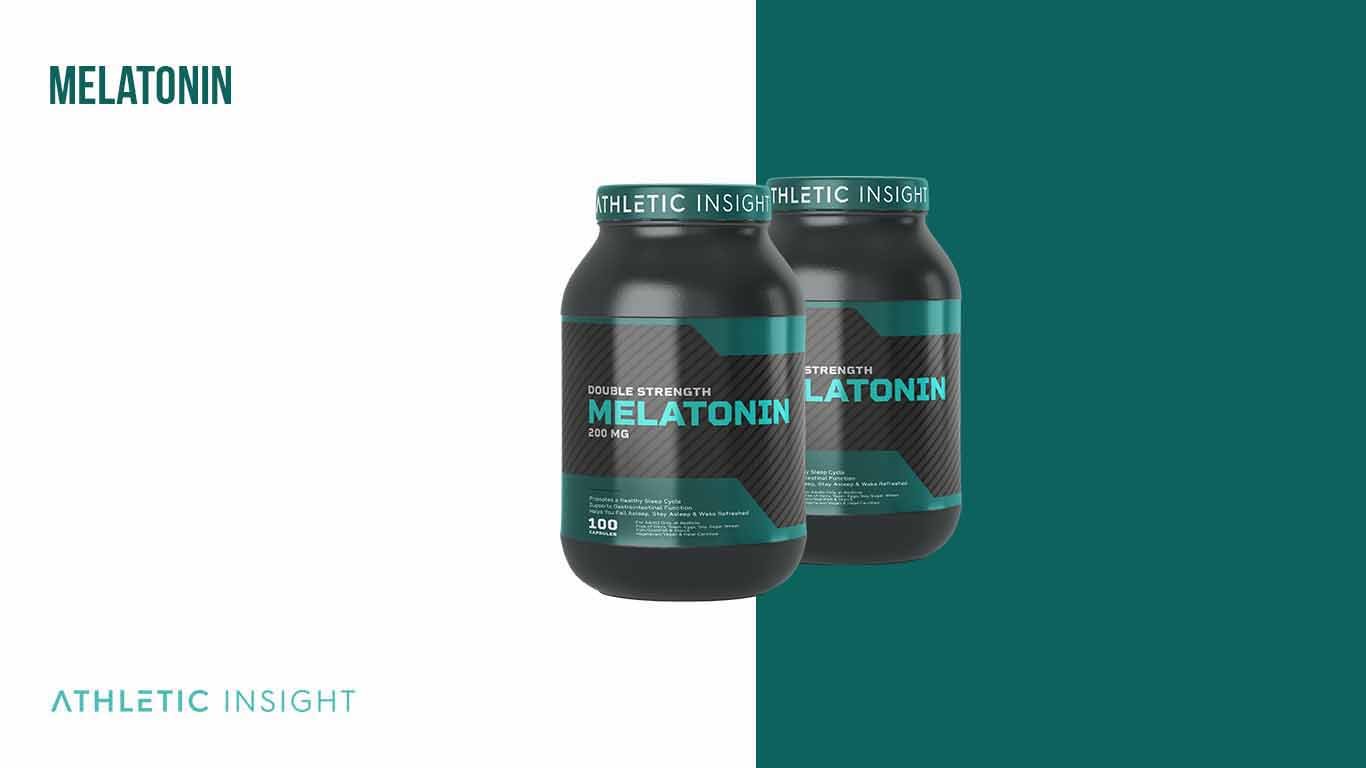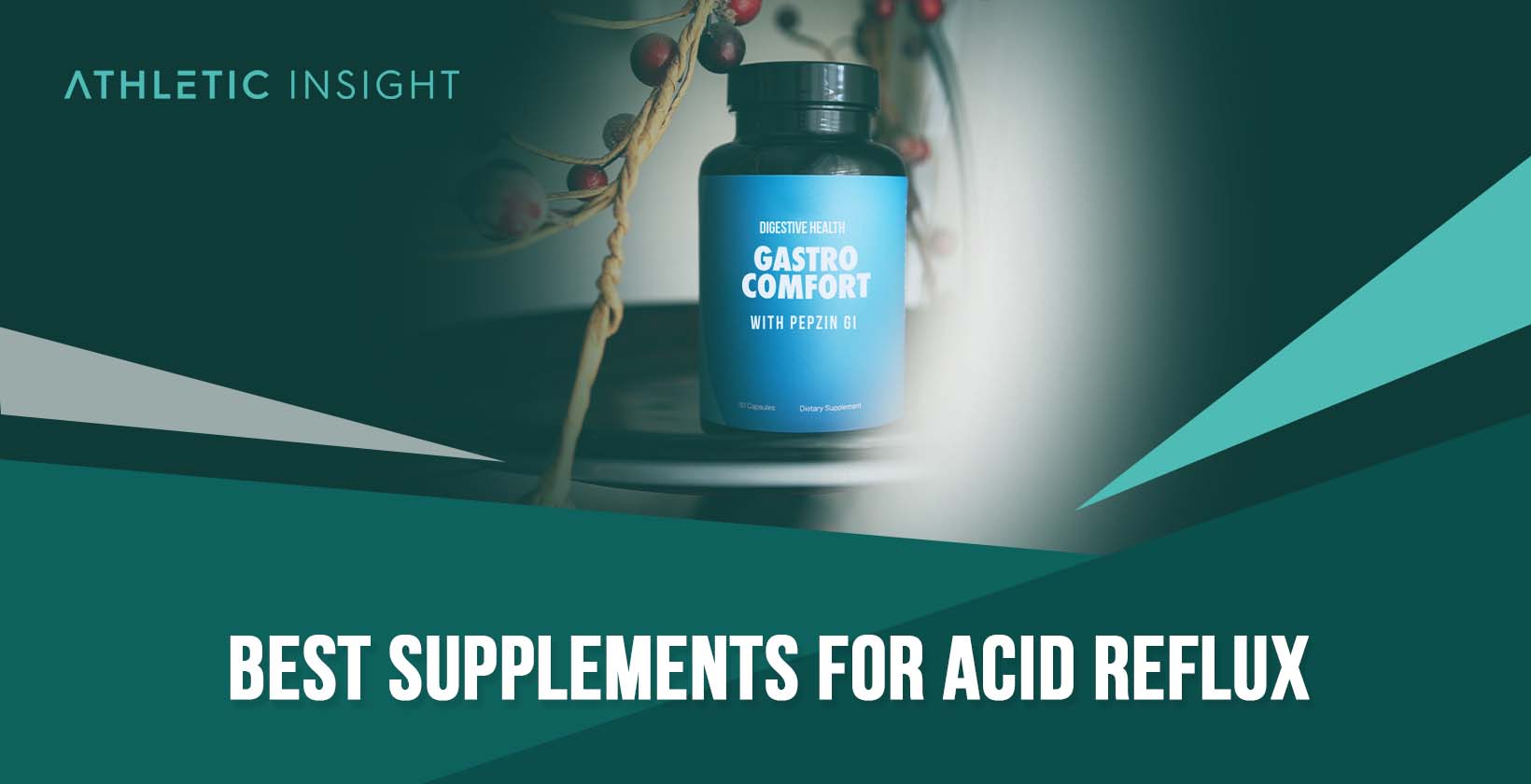The best supplements for acid reflux are substances that help people manage symptoms of the condition. Individuals with gastroesophageal reflux disease (GERD) can often find relief with supplements or vitamins for acid reflux.
Determining what vitamins are good for acid reflux entails examining research and case studies to assess effectiveness. It helps to consider how vitamins and other supplements might interact with other treatments and medications.
What is the best natural supplement for acid reflux? It comes down to person preference and what creates the best balance between a person’s physiology and the side effects from taking acid reflux supplements.
That said, the top three supplements for acid reflux are probiotics, Betaine HCL with Pepsin, B-vitamins. These substances serve as supplements for GERD but can have additional benefits for other body systems. The nine best supplements for acid reflux include the following.
- Probiotics
- Betaine HCL with Pepsin
- B-Vitamins
- Ginger
- Antioxidants
- Peppermint Oil
- Iberogast
- Herbal Supplements
- Melatonin
Athletic Insight Top 3 Products
- Probiotic >>> Best Probiotic Choice
- Betaine HCL & Pepsin >>> Best Betaine HCL & Pepsin
- B-Vitamins >>> Best Vitamin B Complex
1. Probiotics
Probiotics are live bacteria beneficial to the digestive system. Not all bacteria are bad. In fact, the body requires some helpful bacteria to carry out various natural functions. Probiotics are the good guys that ensure a well-maintained digestive system by preventing the growth of bad bacteria.

Some foods naturally contain probiotics, like yogurt, but they come in supplement form as well. These supplements can also ease the effects of GERD and acid reflux. Thes probiotic supplements can cost as little as $9.99 at a local pharmacy.
Live microorganisms found in probiotics are intended to maintain or enhance the good bacteria in the body and prevent the growth of bad bacteria. Probiotics help the body digest food, produce vitamins, absorb medications, and support cells so that harmful bacteria cannot enter the bloodstream.
Probiotic foods and supplements are generally safe because the microbes used as probiotics already occur naturally in the body.
For the first few days after starting to take them, they may cause flatulence, mild stomach upset, or diarrhea, as well as allergic reactions. To ease acid reflux and many other issues, take probiotic supplements once per day.
Seed, Ora Organics, Thorne, Culturelle, Nature’s Bounty, and Olly are the best probiotic brands to consider. When taking probiotic supplements, some people need to exercise caution. Those with weakened immune systems, serious illnesses, or recent surgeries may be at risk for infection.
2. Betaine HCL With Pepsin
A nutrient called betaine comes from foods like grains. Betaine HCL, an acidic form of betaine, has similar effects to the hydrochloric acid (HCL) in the stomach. Betaine hydrochloride raises stomach acid and treats several illnesses, including diarrhea. Pepsin helps with protein digestion and can reduce acid reflux.
Indigestion can stem from a lack of HCL in the stomach. However, when Betaine HCL and Pepsin combine, protein digestion will become more efficient, promoting bile and pancreatic enzyme flow and preventing overgrowth in the small intestine. Additionally, it aids in the body’s metabolization of the amino acid homocysteine.
Betaine HCL for GERD may aggravate ulcers, cause diarrhea, upset the stomach, and cause queasiness. Betaine can also cause an increase in total cholesterol levels. Although there isn’t a set dosage for this supplement, always follow the directions on the product label.
The best brands of Betaine HCL with Pepsin include Thorne, Vitacost, Pure Encapsulations and Ora Organics. Before using this product while pregnant, speak with a doctor.
People who take medications that prevent the production of stomach HCL should not use these heartburn supplements. Additionally, patients with peptic ulcers shouldn’t use Betaine HCL with Pepsin.
3. B-Vitamins
A class of nutrients known as the B vitamins has a variety of vital functions in the body. Since they can be found in many foods, most people can obtain the recommended amounts of these vitamins just from their diet.

B vitamins, such as folate, riboflavin, and vitamin B6 are helpful in the fight against acid reflux. Consume these vitamins through dietary supplements, which cost as little as $11.99 for a bottle.
B vitamins are vital for maintaining good health and are perfect for older adults, pregnant women, and those with medical conditions. They are effective against lung cancer, liver damage, stress and anxiety, and much more. Adequate amounts of B vitamins are essential for optimal physiological and neurological functioning.
Side effects are uncommon with B vitamins, since they occur naturally in typical human diets. However, if side effects like black stools, diarrhea, or abdominal pain occur, they may be brought on by supplement additives that trigger an allergic reaction. These will typically go away, but any severe allergic reaction requires emergency medical attention.
Because of the crucial part that B vitamins play in nutrient metabolism and energy production, take them first thing in the morning. Medical professionals recommend 100 mg of B vitamins daily. Thorne, Nature Made, Nature’s Bounty, and Pure Encapsulations are some of the best brands for B vitamins.
Inform a doctor or pharmacist about any allergies before taking B vitamin supplements. This product’s inactive ingredients may cause allergic reactions or other problems.
4. Ginger
Ginger is a plant from Asia that is common as a food flavoring and medicine. This plant has chemicals that can help the brain and nervous system. Supplemental ginger aids in healthy aging and the prevention of chronic diseases like high blood pressure and heart disease.
Ginger supplements support a healthy digestive system by battling pathogens, easing indigestion, reducing bloating, and shielding the body from disease. It is effective for relieving nausea and vomiting, as well as menstrual cramps and period pains.
Ginger can cause diarrhea, burping, and general stomach discomfort. The maximum daily ginger consumption is 4 grams. The price for ginger supplements is around $9 at the lowest.
The local grocery story is the first place to look for the best fresh ginger. Some top ginger supplements include Nature’s Nutrition, Earthborn Elements, and Pure Encapsulations.
Ginger is known for slowing blood clotting, so be extra cautious when combining it with medications that also slow blood clotting. This combination can result in bruising and bleeding.
5. Antioxidants
Antioxidants are the next dietary supplement that can help with acid reflux. The body fights free radicals daily, and antioxidants can lessen their effects. Free radicals naturally form during exercise and when the body converts food into energy. These unstable molecules cause oxidative stress, which quickens the aging process and leads to diseases.
Antioxidants’ primary feature is to combat free radicals, which aids in the prevention of many diseases. They can be effective against cataracts, heart disease, and more. Antioxidants stop the release of oxidative stress, thus preventing cells from damaging cells. In return, this improves longevity and prevents illnesses.
Antioxidants taken in excess can have negative health effects, including raising the risk of lung cancer in smokers. High vitamin E supplementation may raise the risk of stroke and prostate cancer.
Eating a healthy, varied diet may negate the need to take antioxidant supplements. However, an unbalanced diet requires supplements that can replace the missing antioxidants. Emergen-C, Puritan’s Pride, and Qunol are some of the best brands for antioxidant supplements.
Some medications and antioxidant supplements may not work well together. For instance, those who take anticoagulant medications risk bleeding if they take vitamin E supplements. Additionally, taking large doses may be harmful. It’s possible to get antioxidant supplements for under $10.
6. Peppermint Oil
Peppermint oil comes from peppermint plants and is commonly used as a flavoring and as a fragrance. This oil can help with cramps, gas, colds, inflammation, and respiratory infections in addition to relieving acid reflux symptoms.
Peppermint oil is also a dietary supplement that costs at least $6.99 at the local pharmacy.
People with digestive disorders like IBS, functional dyspepsia, and postoperative nausea can benefit from using peppermint oil to reduce their symptoms. Peppermint oil is also effective against inflammation, respiratory infections, cramps, headaches, and other pain symptoms.
When taking peppermint oil supplements, users frequently experience negative side effects like nausea, dry mouth, and skin rashes.
The typical dosage for peppermint oil is one or two capsules three times per day. It works best to take peppermint oil supplements an hour or so before meals.
Among the top brands for peppermint oil supplements are Mason Natural, Gaia, and NOW. The Food and Drug Administration (FDA) does not certify their efficacy and safety before product marketing. Try to choose a supplement that has undergone independent testing from a reputable organization.
7. Iberogast
Iberogast is an over-the-counter supplement that treats acid reflux, heartburn, indigestion, bloating, gas, constipation, stomach pain, or abdominal cramps. This fast-acting supplement has been used for more than 50 years to treat functional digestive symptoms like these.
Iberogast improves digestive secretions, encourages the release of gas from the stomach and intestines, and reduces the production of acid in the body.
This supplement can relieve symptoms such as indigestion, maldigestion, irritable bowel syndrome, stomach pain, nausea, bloating, heartburn, etc.
Although they are relatively uncommon, side effects can include nausea, abdominal pain, vomiting, and an increase in digestive symptoms. Depending on how severe and how long-lasting digestive symptoms are, it’s possible to take Iberogast indefinitely.
To help manage acid reflux, look for Medical Futures, IBGard, and Steigerwald Iberogast products.
Adults and teenagers (13 years and up) should each take 20 drops of Iberogast. Children aged 3 to 5 should take 10 drops, and children aged 6 to 12 should take 15 drops. In pill form, the recommended dose is three pills per day.
8. Herbal Supplements
Next on the list of the best things for acid reflux are herbal supplements, which contain only purified, FDA-approved ingredients and may contain entire plants or plant parts, in contrast to many prescription drugs and over-the-counter medications that also come from plant products.
Turmeric, milk thistle, licorice root, caraway, and licorice root are just a few of the many herbal remedies that can help with acid reflux. However, the pricing for each varies.
Herbal supplements, which aid in treating illnesses and maintaining health, come from plants. The FDA considers herbal supplements to be food rather than drugs, but they can prove to be effective for burns, flu symptoms, memory problems, digestion issues, and treating depression.
The side effects of herbal supplements can include dry mouth, headaches, nausea, and dizziness.
There are many different kinds of herbal supplements, so follow the dosage instructions carefully. Try Herb Pharm, Barlean’s Organic Oils, and Gaia Herbs for the best herbal supplements.
Herbal supplements have potent effects. They can also interact poorly with prescription drugs. Before using any herbal supplements, consult a doctor to find out about any potential interactions. Additionally, make sure to carefully read the label instructions.
9. Melatonin
Melatonin is a hormone produced by the brain at night. So, when it is dark, melatonin increases, but when it is light, melatonin decreases. Melatonin is also available as a supplement and people commonly use it to treat sleep disorders.

Melatonin is one of the best supplements for GERD and acid reflux because it prevents oxidative damage to the gastrointestinal mucosa and works well to treat heartburn and epigastric pain.
Depending on the manufacturer and quantity, melatonin can cost as little as $9.99 for a bottle.
Taking melatonin supplements may trigger headaches, dizziness, nausea, and drowsiness. The less common side effects include short-lasting feelings of depression, abdominal cramps, mild tremors, mild anxiety, irritability, reduced alertness, and disorientation.
Although there is no established melatonin dosage for adults, a range of 1 to 5 milligrams seems to be the most effective a couple of hours before bed.
Nature’s Bounty, Natrol, and Nature Made are the top melatonin product brands available. These brands meet all requirements, including being readily available, reasonably priced, having premium ingredients, and adhering to FDA regulations.
Exercise caution when picking a melatonin supplement, as melatonin is not subject to FDA regulation, much like other dietary supplements.
Before beginning to take melatonin, it’s a good idea to consult a doctor, especially individuals with preexisting medical conditions or those taking other medications for GERD.
What Is an Acid Reflux Supplement?
Acid reflux is stomach acid backwash that irritates the esophagus causing heartburn and chest pain. Acid reflux supplements lessen the pain. Examples of acid reflux supplements include melatonin, antioxidants, peppermint oil, and more.
What Are Acid Reflux Supplements Used For?
Acid reflux supplements treat and prevent heartburn. They lessen the amount of acid that the stomach produces to reduce irritation and provide relief.
What Are the Best Vitamins and Supplements for Acid Reflux?
Vitamins help the body perform several basic functions, but some support the digestive system to ease acid reflux symptoms. The following vitamins can help with acid reflux.
- Probiotics
- Vitamin B6
- Folate
- Riboflavin
- Vitamin A
- Vitamin D
What vitamins help with acid reflux? Overall, B vitamins are the best choice, including B6, folate, and riboflavin.
How To Take Acid Reflux Supplements?
Taking acid reflux supplements depends on the type. It’s possible to find these substances as tablets, capsules, gummies, liquids, or powders.
- Swallow a tablet or capsule
- Put some drops of oil into a meal or snack
- Mix a powder with water for a drink
- Eat a gummy supplement
When in doubt about how to take acid reflux supplements, consult a physician or pharmacist to clarify the instructions.
What are the Best Acid Reflux Remedies?
The best acid reflux remedies are making changes to your lifestyle (smoking, alcohol, diet, weight control), eating smaller meals, avoiding food before bed, taking antacids (Tums for example), herbal remedies such as tea or ginger, and going to a doctor.
- Making changes to your lifestyle (smoking, alcohol, diet, weight control)
- Eating smaller meals
- Avoiding food before bed
- Taking antacids (Tums for example)
- Herbal remedies such as tea or ginger
- Going to a doctor
What is the Best Probiotics for Acid Reflux?
The best probiotics for acid reflux are the strains that can help balance the gut microbiome, potentially reducing symptoms. Lactobacillus strains, such as Lactobacillus acidophilus and Lactobacillus reuteri, are commonly recommended due to their ability to survive stomach acid and adhere to the intestinal wall, where they can exert beneficial effects.
These strains may help improve gut health, enhance the barrier function of the gastrointestinal lining, and reduce inflammation, which can contribute to the symptoms of acid reflux. For the best probiotic that will help with acid reflux, stick with Seed Health.
How Many Acid Reflux Supplements Can You Take a Day?
Each acid reflux supplement is different from the next. However, a common rule amongst them all is to take no more than 2 doses within 24 hours.
Can Using Too Many Supplements Lead to Acid Reflux?
Be cautious about taking heartburn supplements because overdoing it can lead to harmful interactions. When substances don’t mix well, it can further aggravate the esophagus and make symptoms worse. Additionally, taking too much can cause more trouble with the digestive system.



